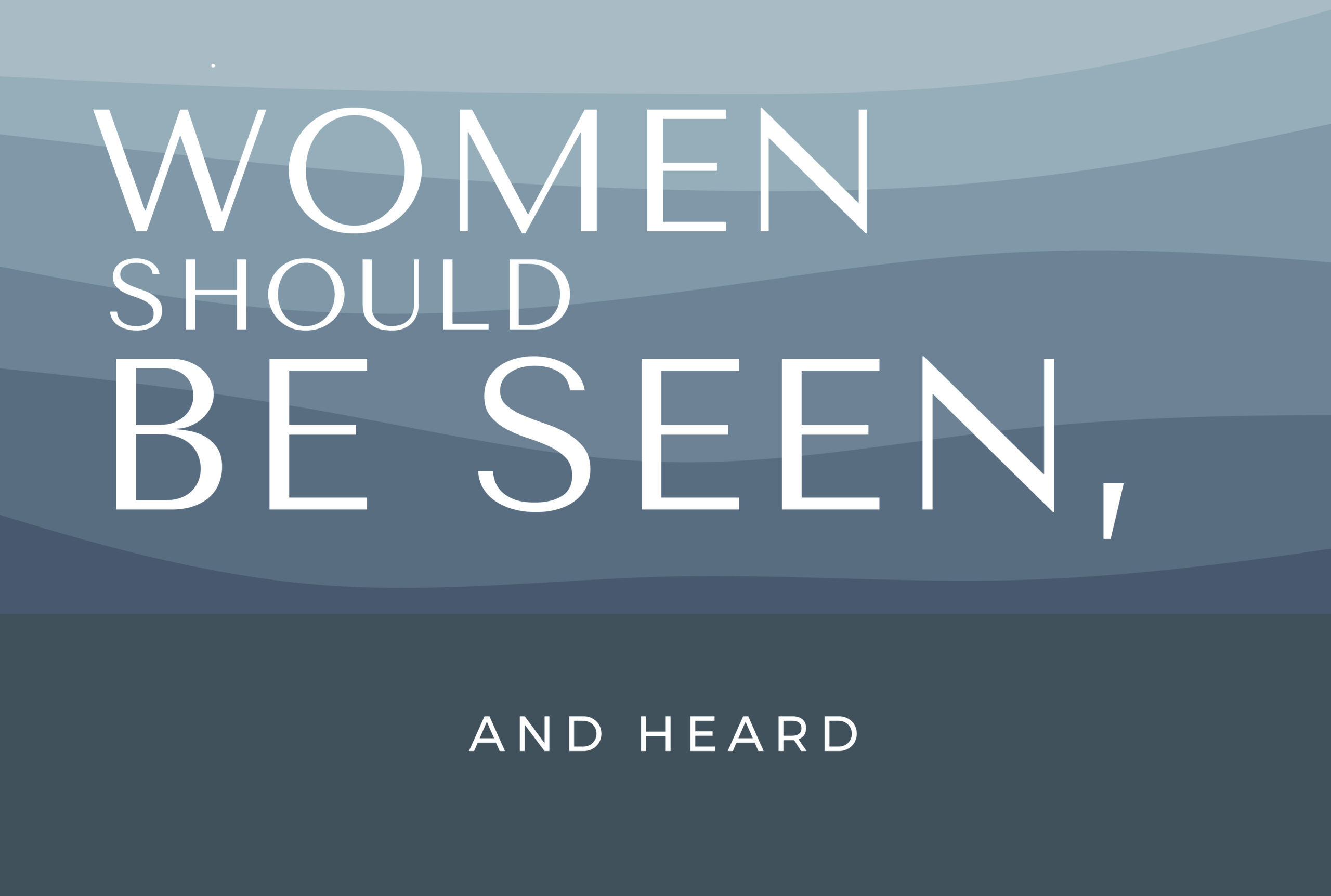
Women Should Be Seen, and Heard
Inspired by this week’s Moms Making Six Figures Podcast episode with Sharon Faustina, CFO, who leapt into her own professional growth rather than remaining in her reliable position. Sharon became proactive in championing herself and her skill set by emulating what her male counterparts were doing to receive promotions, ultimately saving herself by ‘getting unstuck’.
If you’ve been around the sun for more than a few rotations, chances are you’ve seen a woman you love be passed over for a promotion, a pay raise, or a more prestigious title. According to the data, there’s a high likelihood that as a career woman you’ve not only witnessed this happen to other women, but you’ve also found yourself in that same stuck position. So what do we tell our friends, our daughters, ourselves about the value of our work when it isn’t recognized in the world?
The Status Quo
According to a 2019 report, Women in the Workplace, conducted by McKinsey & Company and Lean In, ceilings that were once shattered have begun to hinder working women once again.
- From 2015 to 2019, there has been a 15 percent increase in the number of companies who have at least three women in their “C-Suite” (where chief executives and officers rub shoulders).
- At the same time, 35% of companies surveyed in 2019 had only one female C-level executive, or none at all.
- Women are underrepresented at every level, not just the top tiers. The problem with this lack of representation in the workplace is the “implication for the rest of a woman’s career”; fewer women in lower management positions means fewer women on the path to greater leadership positions that ultimately lead to those coveted C-Suite roles.
- For every 100 men promoted, only 72 women receive a similar promotion.
Gender Bias
Women are every bit as ambitious as their male counterparts, comprising nearly half of the entry-level workforce, but they’re obviously hitting a roadblock between the beginnings of their careers and making the leap to the C-suite. Experts believe lingering gender bias is the main culprit.
- In the same aforementioned Women in the Workplace report, authors identified an important linchpin, “Women are often hired and promoted based on past accomplishments, while men may be hired and promoted based on future potential,” the authors wrote.
- Unconscious bias is still running rampant in workplace cultures. In the Forbes article, “Women in the Workplace: Why They Don’t Get Recognized as Much as Men”, contributor Maria Minor states it simply, “Some leaders still carry the assumption that males have more potential than a well-qualified woman. Even gender achievements are perceived differently.”
- Sheryl Sandberg, the chief operating officer of Facebook and the founder of Lean In, identified the following prevalent bias still plaguing the workforce, particularly when women assert themselves and participate in negotiating their value, “We expect men to be assertive, look out for themselves, and lobby for more—so there’s little downside why they do it. But women must be communal and collaborative, nurturing, and giving, focused on the team and not themselves, lest they be viewed as self-absorbed. So when a woman advocates for herself, people often see her unfavorably.”
Mentorship and Sponsorship
While we all recognize the importance of mentorship in our careers, there is a different kind of mentorship that men are more likely to encounter that gives them a significant upper hand in the workforce—sponsorship.
- When the Harvard Business Review interviewed men and women regarding valuable career advice, the difference between male and female mentorship became clear, along with the outcomes, “Many women explain how mentoring relationships have helped them understand themselves, their preferred style of operating, and ways they might need to change as they move up the leadership pipeline. By contrast, men tell stories about how their bosses and informal mentors have helped them plan their moves and take charge in new roles, in addition to endorsing their authority publicly.”
- According to The McKinsey and LeanIn study, women are not granted the same chances as men for support and guidance when it comes to the pursuit of their career opportunities; women are 24% less likely to be offered advice from a senior leader than men.
Thankless Tasks
In addition to bias and a lack of sponsorship holding women back in ‘reliable’ positions, women are often expected to, or they are ‘voluntold’ to take on tasks that are necessary to a company’s success but that are both thankless and, perhaps worse, viewed as “non-promotable”.
- According to research, women are more likely to volunteer for “non-promotable” tasks than men, meaning they spend more time and energy getting selfless things done rather than focusing on getting new positions.
- These tasks look different depending on your profession, but no profession is immune to such tasks. A study at the collegiate level reviewed 3,271 faculty members at a public university and found that while only 2.6% of men volunteered for the faculty senate committee, 7% of women did. Simply put, women are more likely to take on a role that will not lead to a promotion.
Flipping the Script
How can we make the C-suite more accessible for women in the workforce and instill the confidence in the women in our lives (and in ourselves) that their work is both valuable and recognized? According to CEO of The Female Quotient, Shelley Zalis, the solutions to this problem do exist, it’s just a matter of enacting them.
- Accountability in our corporations | First, we must create specific plans to advance women in the workplace, including unconscious bias training, hiring, and promotion women fairly and providing equal access to sponsorship and mentorship opportunities. Further still, supervisors should begin to rotate and evenly assign responsibilities between all employees rather than relying on women to volunteer.
- Know your value | Women are undeniably more prone to the fallout of Imposter Syndrome than men; both genders question their ability to take on new roles, but men simply step into those roles while women will second guess and over analyze their seat at the same table. If a man only possesses 6 of 10 skills identified as imperative to the position’s role, he will learn and enact the other 4; conversely, if a woman is missing even one skill, she’ll remove herself from the conversation altogether. We have to value ourselves before we can expect others to recognize that same value.
- Help each other | The lack of support and sponsorship that actually works is not a male or female issue; instead it is a leadership issue. Leaders should be focused on mapping out a pathway for all employees to advance rather than simply flooding the pipeline with more skilled individuals and no guidance. Businesses should be investing in intentional sponsorship programs following the example of Deutsche Bank, rather than relying on employees to seek out their own mentorship, that is often informal and benefits individuals on more of a personal level than a professional one.
Women bring a unique and powerful skill set and perspective to the workforce, that once recognized is irreplaceable. We must advocate for our presence in the boardroom, and speak so as to solidify our place amongst the echelon of the C-suite. Women should be seen and heard, their work and their worth is valuable and it cannot wait for another trip around the sun to be celebrated and compensated.


Post a comment:
You must be logged in to post a comment.